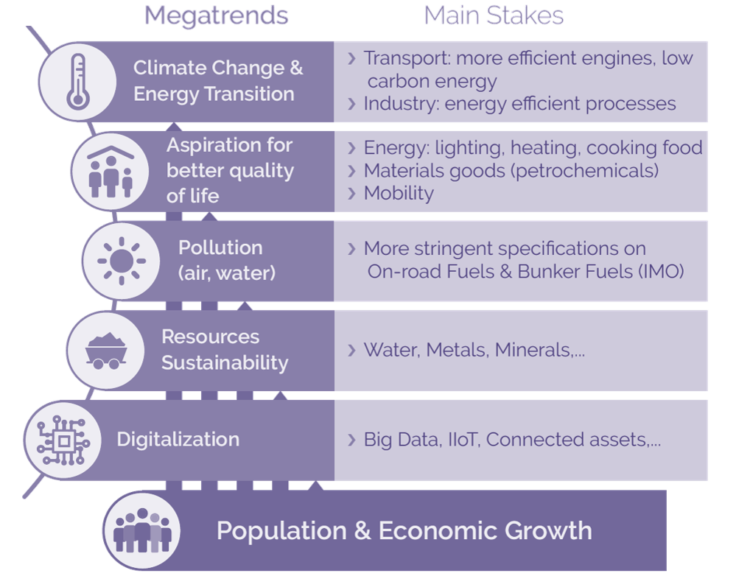
Driven by the expanding middle class in the world’s fastest developing economies, demand for cleaner transportation fuels and petrochemicals remains strong. Global demand for crude oil is expected to grow at 1% per year to reach around 106mn mb/d in 2024, according to the International Energy Agency (IEA).
If current trends in oil continue, the shift in demand from transportation to the petrochemical sector will accelerate. Petrochemicals should account for one-third of the growth in oil demand by 2030, rising to 50% by 2050.

To meet this demand, Axens is continuously developing innovative schemes to convert an increasing share of crude into olefins (or alkenes) and aromatics. An outstanding example of this trend is the implementation of Axens technologies in China’s Hengli complex. Plastics recycling is evolving amid growing consumer awareness and new legislative controls. To address the impact of plastic waste on the environment, Axens is involved in recycling processes for plastics such as PET.
Looking at the longer-term, global demand for refined products should peak in the 2030s, despite an increase in demand for mobility. The peak is explained by the impact of engine efficiency gains by new passenger vehicles, rising electric vehicle penetration and the substitution of fossil fuels with biofuels or LNG.
This would be an important step in meeting the Paris Agreement objectives, but it will not be enough. To minimize our industry’s environmental footprint, Axens is focusing its efforts on three main areas.
This is achieved through audits and specially developed custom designs that prioritize the implementation of highly energy-efficient equipment.
In addition, the digitalization of refineries and petrochemical plants enables the collection and analysis of data in real-time, accelerating operators’ technical decision-making process and energy efficiency.
These fuels come from non-food crops—therefore not affecting food security—such as:
Axens is involved in the 3D project in Dunkirk, an innovative process that can reduce the energy consumption of the capture process by 35%.
In a fast-changing world shaped by increasing environmental awareness, low-carbon economy transition and connectivity, the energy and chemical industries must innovate and deliver ever more advanced and efficient solutions to contribute to a better world.
Innovative approach leveraging digital solutions, leading to improved asset operation and performance.
Efficient, reliable and flexible technologies to convert biomass into high quality and low-carbon alternative products for the transportation sector as well as chemical industry.